8/7/1822 - 8/7/2020: almost two centuries from the drowning of Percy Bysshe Shelley, whose figure immediately became admired and venerated by the most restless spirits. The Prometheus who steals fire to give it to men, found in the English poet a version at the extremes of high ideality, in the name of a radical social and spiritual renewal. An unrepeatable season, here told through little-known sides of ours and through the profound influence on personalities very distant from each other, such as d'Annunzio, Crowley and Carducci.
di Stefano Eugenio Bona
cover: Louis Edouard Fournier, "The funeral of PB Shelley"
"Death is the veil which those who live call life. "
(Prometheus Unbound, III)
Il "Prometheus Freed " it can be said to release the most ardent spirits of the nineteenth and early twentieth centuries from their bonds. In the triad of the second English Romanticism, Shelley represents the spirit of apotheosis, Byron the demonic and Keats the naivety of Nature. The Prometheus who is not yet thirty years old finds his death off the coast of Viareggio, is one of the most magnetic figures in the history of literature, in his short life always tense on the thread of the most disparate experiences: from spiritism to physical daring, from pen heroism to deeds in the vortex of the world, from anarcho-socialist proclamations to a theodicy of history. - I tried everything. I understood everything and everything / I embraced with my genius [1] the figure expressed in the irreducibility that minces the days, the hours and the works, faustianly devouring the young English romantics, to refer to Byron's Manfred. Echo of what you will have appropriately in the poet and his famous Everything was coveted / and everything was tempted ... [2] We immediately glimpse a taut and inevitable thread.
In those verses and in those of his acts, two specific Prometheans drew the "footprint of the unspeakable" that the wisdom of Giorgio Colli nomination in "After Nietzsche": that is, lymph to go to the enigma before words and then transpose it into the momentary ecstatic condition, through states of consciousness in which the word that has arisen can never be referred to a logic of use [3]:
The enigma appears, according to Plato, when the sound of words, in its immediate meaning, does not return what is understood by the speaker.
That is: to translate certain states you will have to use a verbal form perceived as incongruous, by those outside the dimension where "'ntender no, who can not try it " of Dante's memory ...
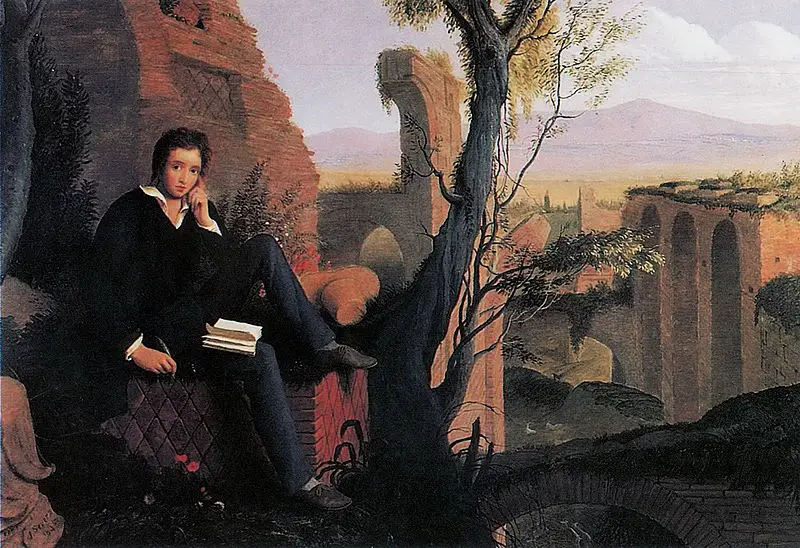
I.
We are talking about Gabriele d'Annunzio need Aleister Crowley. The poet and the magician, at the source of Shelley, drew this stupendous sap of full enigma, and transfused it in contact with their genes. Shelley gives, not surprisingly, the power of transfiguration in (and by) the name: Ariel and Alastor are re-proposed in the duo's fury of life, and in this "Son of the wind" they situate their ignition. Ariel - spirit of the air in Shakespeare's Tempest, he was dear to the Poet and perceived by the special sensitivity of d'Annunzio. Thus Shelley called the schooner built in Genoa, with which he left Livorno on 8 July 1822, for San Terenzo. Alastor - or it spirit of loneliness - refers instead to the poem of 1815 and resonates strongly in the very choice of changing the name from Edward Alexander to Aleister ...
Let's take just four of the many passages where d'Annunzio clarifies his love for Shelley (omnipresent in Pleasure); a small obsession even, a purple nostalgia for death (to quote Landolfi), a real ignition of fury, in the early works, then changed into a call towards the undertow of the deeds. The language of the spirits that seems to outline the play of sphinx light of D'Annunzio's interiors, ne "The pleasure" bears notes of great visual intensity:
The shadow, everywhere, was diaphanous and rich, I would say animated by the vague pulsation of light that the dark sanctuaries have where there is an occult treasure. The fire in the fireplace crackled; and each of its flames was, according to Percy Shelley's image, like a gem dissolved in an ever-moving light ...
Also in Il Piacere, Maria Ferres (not surprisingly the spiritualizing lover, as opposed to the femme fatale Elena Muti ...) notes in her diary:
I read Percy Shelley, a poet he loves, the divine Ariel who feeds on light and speaks in the language of spirits...
Then in the "Triumph of Death", craves a transfiguration in a superhomistic key (these are the years of the greatest aristocratic contempt and of the deepest influence of Nietzsche):
The end of Percy Shelley, already envied and dreamed of several times under the shadow and the shudder of the sail, reappeared in an immense flash of poetry. That fate had a superhuman grandeur and sadness.
The most late and suffered "Secret Book " it's a flyleaf between the heroism of maturity, where Ariel's example always beats:
In three days I can be at the bottom of the Carnaro, and thrown onto a beach of Krk, of Cres, of eastern Istro, in three days I can finally be, like the Shelley of my adolescence, something rich and strange, " something rich and strange ”, or a bruised corpse that cannot be found, in a leather tunic, like Roberto Prunas. [4]
The definition of Shelley as a major modern lyricist (in Faville del Maglio) is primarily due to Enrico Nencioni and Joseph Chiarini, Together with De Bosis (who devoted his whole life to translating Shelley) in close contact with the poet, in the period between the nineteenth and twentieth centuries. In this paper he launches an illuminating paean on a Shelley hidden and understandable only in a marked choice of taste and some "subtle" abilities that do not pass from books, culture and social burdens:
Prometheus is the greatest poem of this century, perhaps even greater than Goeth's Faust ... It seems that this son of the Ocean has really awakened a sleeping voice unknown in the world. Even his less cured hatreds have something superhuman about them. Certain notes seem to come not from the mouth of a mortal but from that of a god or a demon. Certain lines seem to be woven with the imponderable element of some Elysian dream… While he possesses the highest virtues of the highest ancient masters, everything is new in him. The images of him are not found in any other poet: they spring from his brain with such prodigious abundance that the richest seem miserable compared to him.
D'Annunzio lives that sort of on his own skin Ariel's "soul heat", that is, a state of enlightening consciousness, a living intensification of the noetic fire. This essential non-concept is rendered at the hermetic source of Julian Kremmerz [5]:
The angel of the will is ARIEL, force or will, because the most powerful force is the will of the man who knows what he wants ... Virtue is Ariel, it is strength, it is purification…. Ariel, intelligence of Mars and demon, becomes active in the elevated zone of intellectuality, while in the material world he is active in conflict or warlike ...
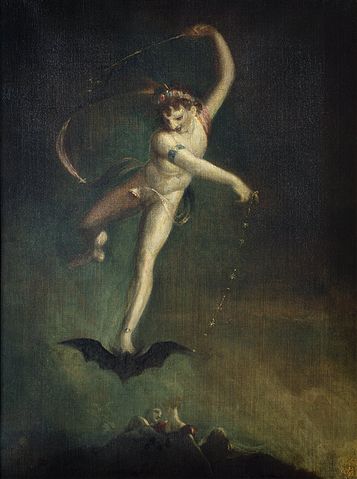
Ariel was the initiatory name within the martinism, and who knows if Shelley understood its peculiarities exactly in the above terms, what is certain is that in the years of the prestigious Eton College he undertook assiduous esoteric reading (obtaining rare books of magic), he participated in séances and even had an experience necromantic (unsuccessfully), as his friend and biographer reliably testifies Thomas Jefferson Hogg (with whom he also published "The Necessity of Atheism") in "Life of Percy Bysshe Shelley". We note in passing the early work (vague term, given the premature death) "St. Irvyne; or, the Rosicrucian: A Romance ": it is based on wanderings and encounters with an elusive Rosa Croce alchemist.
On the other hand, the demon Alastor, by the divin Shelley transposed into power as "the Spirit of Solitude" in the game to cross the worlds, further cemented the name chosen by 666 Beast, or a Scottish variant of Alexander, the hieronym with which he highlighted his presumed Gaelic ancestry. In this poem, the poet's narrator finds "Strange truths in unknown lands", while the poet's demon, Alastor in fact, inspires wanderings beyond matter, passing over the expanses of Persia, Arabia, and again between the mountains of the Caucasus and Kahsmir. All this must have remained imprinted on the traveler Crowley, precisely because of the wholly interior and mystery value of a sinking into the world in contact with one's own demon. He autonomously "wanderer of the waste", Always borrowing the Shelleyan conception of a race against time, society, conventions, and above all," the waste ", in him was the end of the" residue "of the Aeon of Osiris ...
In De Poetis (Liber Aleph), the importance of the forerunners-hammers at the end of this cosmic cycle is clear [6]:
For this reason the Poet is said to be an incarnation of the Zeitgeist, that is, of the Spirit or Will of his period. Thus every Poet is also a prophet, because when what he says is recognized by men as the expression of their own thought, they translate this into the act, so that in the vulgar and ignorant people's speech, "what he foretold is happened ". Now then, the Poet is the interpreter of the hieroglyphics of the hidden Will of man in many matters, some light, some profound, as can be given to him to do. Furthermore, it is not all considered in the word of every poem that you may seek this prophecy, but in the quintessential taste of the Poet. And this is an extremely necessary art for any statesman. Who but Shelley predicted the fall of Christianity and the organization of work and the freedom of Woman? And who but Nietzsche proclaimed the root principle of the World War? Then he clearly observes that in these men were the keys to the dark gates of the future; shouldn't the kings and their ministers have heeded this, fulfilling their word without conflict?
The very romanticism of the Beast 666 is found in that poem signed by Shelley after the visit to Florence in 1819, where in the Uffizi he saw the Medusa once attributed to Leonardo (now to an unknown Flemish): No painting made a deeper impression on the soul of Shelley, of the Medusa, underlines Mario Praz. In the following verses we find a manifesto of the romantic sensibility now ready to embrace the shapeless and to consider parameters of beauty in a different harmony, going to feel those recesses of repulsion hitherto forbidden. [7]:
Its horror and beauty are divine
On her lips and on her eyelids she poses
it is like a shadow: they radiate it
burning and gloomy, the agonies of anguish
and of the death that are struggling underneath.
—
And from its head, as if from one body, arise,
like the grass from a damp rock,
hair that is vipers, and twists and stretches,
and weave the knots together
and in infinite windings they show
their metallic splendor, almost to mock
the inner torture and death ...
To put it with Mario Praz, Crowley learns the Medusea beauty and then carries out some metamorphoses of Satan, taking as a model Milton's vitalism and energy of Satan.
The shadow of the "Paradise Lost“, Yet he was keen to specify (in the preface) how his own Prometheus outweighs Satan, since it carries the request of a love for men, a factor which is absent in the second, driven by pride and competitiveness. Jupiter (representing the Creed and the Crown) is mocked and dethroned by the strenuous ideal of Prometheus, and in fact knowingly uses a license with respect to Aeschylus's "Prometheus Freed", where a reconciliation between Jupiter and his victim is supposed. Not here, in the Poem written mainly above the ruins of the Baths of Caracalla, among those vertiginous arches at the time freely accessible day and night, the victory of the Titan in the name of a humanity free from the Father Jupiter and in possession of regulatory autonomy, with also free access to the animating fire, which we will talk about shortly.
The second act is the one that touches the supreme levels of moral highness: the Titan shows compassion for the Furies who torture him, The Prometheus-Shelley, in the highest heroism despises his own material life, thus responding to the First Fury: My element is pain, like yours, hatred. Tear me apart. I don't care. And in this radical revolt against the establishment of the time, the here hypostasized titan perseveres in an even Socratic tone: I don't consider what you do, but what you suffer, being you bad. Cruel was the Power, which you and any other being so wicked summoned from the Erebus into the light. In the third act, with the liberation of the world we arrive at the apotheosis. Then, in the finale, the choral songs express this jubilation, as in a symphonic concentration where nature and planetary orbs animate transcendence and seem to echo the music of the spheres.
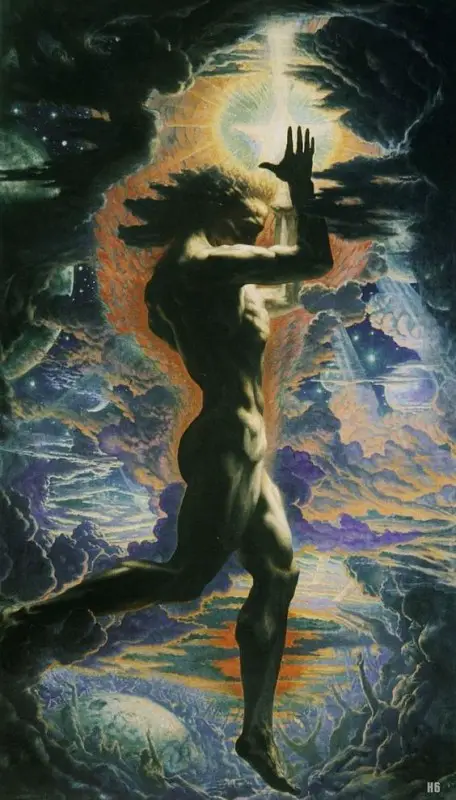
II.
Up to now there have been no readings that have united two personalities as distinct as that of D'Annunzio and Crowley. Yet the very source of their poetic transfigurations draws on a name that stands out above almost all of their influences (which can be compared, among the very few, to swinburne and Nietzsche for the influence it had on both).
"Ode To The West Wind" would be read in one go, as it overwhelmed the Yeats and Pounds, as well as the d'Annunzio and Crowleys ...
the enchantment of these verses of mine disperse
as from a hearth not yet extinguished,
the sparks and the ashes, my words among men!
The dart thrown here is melancholy and challenge at the same time, the poet vibrates the shock and the wild Spirit of the West Wind (you who wherever you agitate, destroy and protect: listen, listen!) is invoked to bring about a renewal. The West Wind stuns and remains wild, and later poets who feel might are like it:
A throbbing wave to your strength, and I could
Share all the impulse of your power,
Only less free than you, oh you who are uncontrollable!
Let's not forget to look behind Shelley, beyond the classics and beyond Shakespeare, where is the fundamental junction for which Celestial Tradition spoke to the purest flowers of England: Thomas Taylor, the great Albionic Neoplatonist. Shelley will have carefully read a passage like this, very profound on the mystery function of Titanism and of Hercules:
The design of the mysteries is to bring us back to perfection from which, at the beginning, we began our descent (κατάβασις) ... The soul descends in the manner of Kore in the generation, but is distributed in the Dionysian generation; and she is bound in the body Promethean and titanically: she thus frees herself from her bonds by exerting the strength of Hercules. (Thomas Taylor, A dissertation on the Eleusinian and Bacchic Mysteries)
The Promethean conception is initiatory where the power of Hercules acts (the force that fixes alchemical compounds), Taylor illustrates, yet Shelley goes even further and seems to derive the energetic surplus from the intervention of Demogorgon, who dethrones Jupiter in Prometheus Freed.
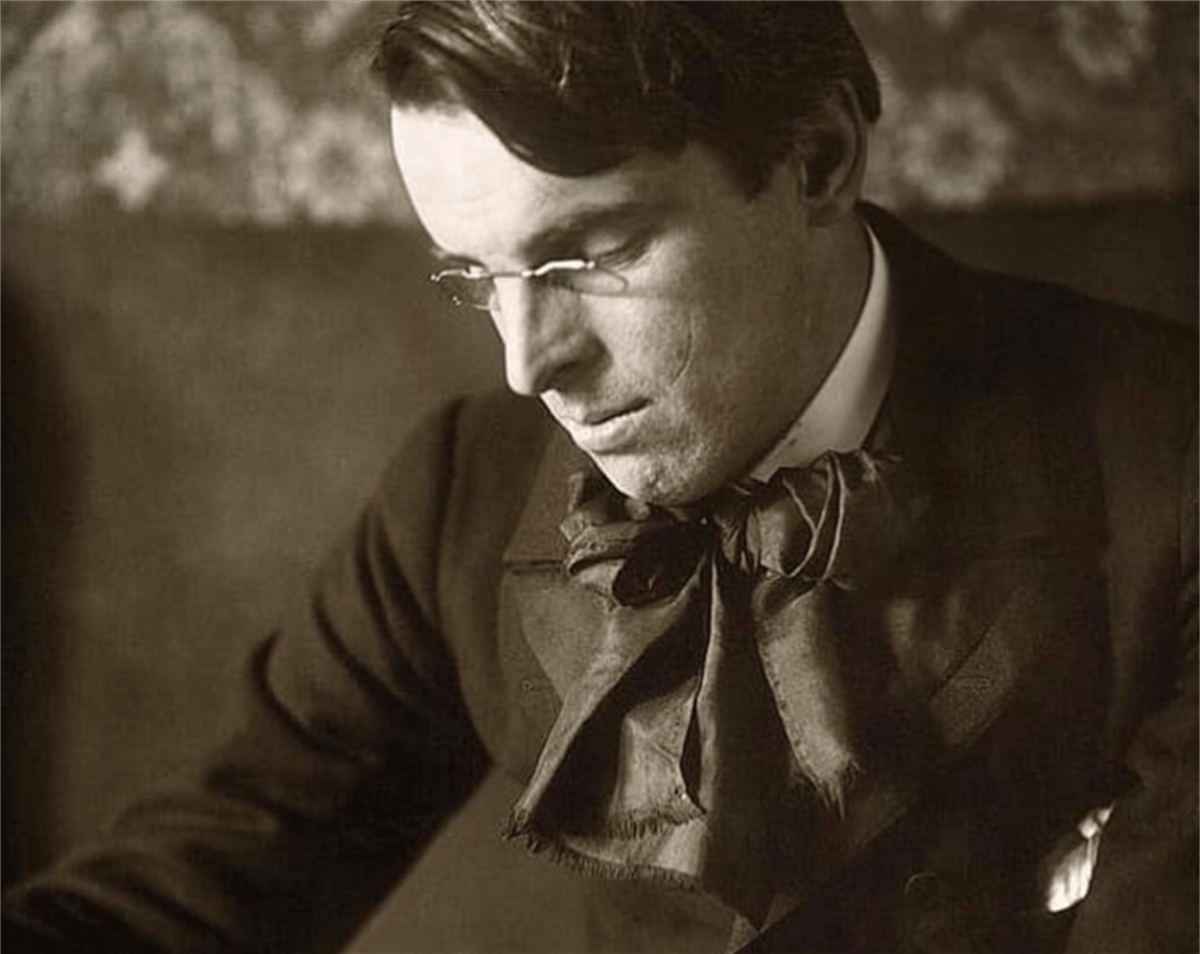
By doing this you will better understand the transmission in Blake, Wordsworth, Keats and Byron, up to later esotericists and scholars (from Blavatsky to Yeats), who referred to his interpretations of ancient spirituality. The reflections of Yeats in "For Amica Silentia Lunae", They are daughters of this tradition and of a sapiential problem:
When I think that Shelley (Adonais, room LIV) calls our mind "the mirror of the fire that thirsts us“, I can't help but wonder what many have already wondered:“ Who or what broke the mirror? ”. I start by studying the only person I am given to know, myself, and winding the thread around the spool ...
And again the great Irish bard:
The Universal Self is a fountain, not a cistern, the Supreme Good must give itself perpetually. The world is necessary for the Self, and in that Self all the liberated selves are present, ordering all things, from the Polar Star to the passing wind. They are certainly the spirits that Shelley imagined visiting, in her Adonis, the inspired and the innocent. (Notes on Māṇḍūkya Upaniṣad)
In Italy there were a couple of other poets, particularly close to the English Prometheus: Carducci and Rapisardi. The first, very distant from D'Annunzio's interpretative keys, accompanied the spirit of Shelley in “At the sources of Clitumno”, “Song of love” and “At the urn of Percy Pysshe Shelley”. In the latter (in the Barbarian Odes) he immortalizes the Englishman as a "poet of the liberated world", "Spirit of titan / within virgin forms".
Shelley is a contemplator of nature and draws poetic material from it, and this gives rise to a comparison, to Carducci's pen, for that pre-Nietzschean trait of innocence of becoming:
The objectivity in him is as much as in Goethe, with this difference that in German the intellect of one and of the ego prevails, in English that of the whole and of the other..
Carducci senses what, on the other hand, makes the Vate fall in love, namely that Shelley is too classic for the Italians of the nineteenth century, therefore little read, albeit much heralded. It also sees a fundamental question which elevates interpretations:
For the spirit and the thought he proceeds from the philosophy of the eighteenth century and from the revolution; but Holbach's initial materialism transcends him through the coils of the Spinozian system a a pantheism that rises from degree to degree, enlightening to a ray of divine purity...
To this he adds a comparison coming no less from the Masonic world [8]:
His socialism stands at the top of his lofty ideality: like the mystic bird of the pelican, he tears his young breast with the strength of genius, and pours out the blood of his poetry to water the arid century.. [9]
But the first version of Prometeo Liberato came only in 1892, by the hand of Mario Rapisardi, a highly polemical poet with Carducci himself (guilty, according to him, of a certain conformism and a flattening of the "satanic" and socialist fury of the early ) and lively centralizer of anti-clerical and republican instances. We are talking about another emulator, still mindful of the Miltonian rebellion, and in this he cloaked his charm with a certain charm. "Lucifer".
Se il Prometheus it is to be understood as the liberator of the individual in his self-determination, it is also in the reopening of forgotten possibilities that this possibility is given: it is not starting from the philosophy of a liberation (the passive phase of freedom ...) - from constraints (the opposite of true freedom as an inner conquest) that the Medusean beauty and the yearnings of a revolt against the rotting world around the Enlightenment gave themselves (it doesn't even matter how much for or against, being the manifestation and symptom of a historical process now finished). Shelley is the apotheosis of the function of the poet in the modern world, for an Olympic view, his freedom is that of those who conquer their oasis in the desert.
The ideal state of Prometheus is famous: a reset, a clean slate and nevertheless not to be considered as a licentious speck that enjoys atheism and socialism, not at least in the significance of these words nowadays. For the Shelley they designated primarily a state of revolt, yes of revolt in the name of a lived Greek in the blood. The Prometheus that he was is entrenched and then sends signals, and in that restart without civil and religious connotations between the lines commands a greater and definitive freedom. Since Prometheus is rebellion to the existing, also and above all against finiteness, Shelley's form of atheism being not the absence of the divine, but a profound and distinct aversion to the creationist principle. In her own way it resulted in an emanationist deism.
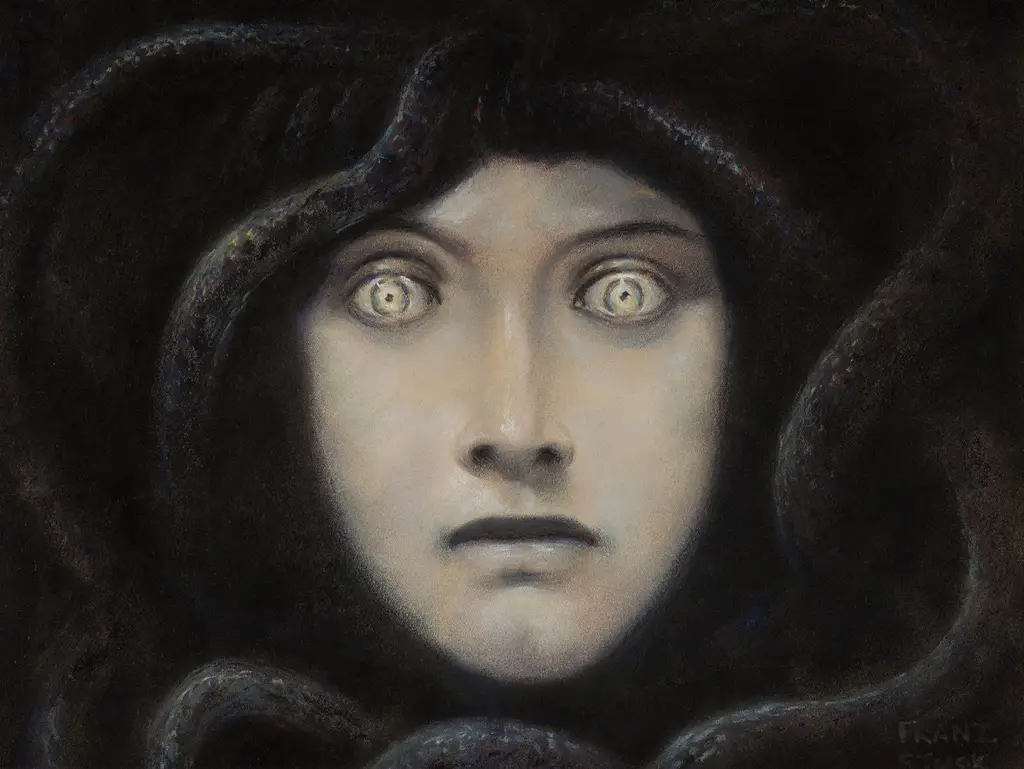
III.
In cauda, an additional consideration. Son of the titan Iapetus and of the oceanine Climene [10], Prometheus amazed Minerva for her ability to form man from mud. In fact, she made him ascend to Heaven, so that she could choose a gift, but among all she chose to take a spark from the Chariot of the Sun, in order to bring the animating fire on earth. Zeus thus decided to punish the author of the theft, together with all mankind. Robert Graves, in its treasure trove of secrets "The Greek Myths" aptly notes a parallel [11]:
In the Talmudic version of creation, the archangel Michael (which corresponds to Prometheus) creates Adam from the dust not by order of the Mother of All Living, but by order of Jehovah. Jehovah then breathes life into him and gives him Eve as a companion, who, like Pandora, brings misfortunes to mankind.
Well, even if we admit only a horizontal reading of the consequential freedom from dogmas and let it pause among the nostalgia for an authentic socialism, it would nevertheless not be permissible to limit ourselves to conceiving the The fire of the rat from a merely elementary point of view. Evidence suggests a much deeper theft [12]:
Heavenly fire, when it comes to Hermetic Science, it is the mercury of the Philosophers. In physics it is solar fire.
The sacred fire understood as among the Chaldeans, which in the city of Ur maintained a perpetual fire, while the Persians had the Piraeus, temples intended to keep only the sacred fire. If we want to tighten the meaning, we will go to the Group of Ur, precisely a Julius Parise, hieronymus Luce [13]:
It is appropriate to mention, among the many symbols that refer to fire, the analogue of theignis centrum terrae, the central focus, common to every tradition.
The fire element is the most important as it purifies, elevates, transmutes every other internal compound of man, ignis sacer lights up only when the highest part of the intellectual plane opens, and in fact, to theWork of Fire it was referred to in the theurgic action of the Chaldean magi [14].
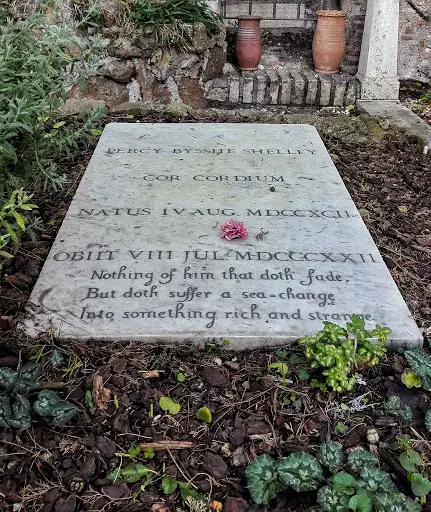
What Prometheus brings among men is what Shelley does not stop transmitting with his testimony. Today we are celebrating his earthly passage and at the same time his enormous legacy, some personalities have given us ideas to perpetuate his memory, but now our gaze turns between Viareggio and Lerici, there in the beloved "Baia dei Poeti". Today like yesterday.
We are Monday 8 July 1822, the sky clouds over, but the breeze seems to blow benign for the return to Lerici, after a trip to Livorno. Between one and two o'clock the boat leaves the port and remains visible up to 10 miles towards Viareggio, after which it disappears in the thickening of the leaden summer storm. His wife Mary and Giovanna Williams keep watch, anxiously asking for news from Byron and Hunt in Pisa, to find out if the boat may have been pushed towards Corsica or Elba. They return to Lerici, while Trelawny promises to look in the direction of Livorno, who on the evening of July 19 returns and flees the doubts: they found them drowned along the coast. Shelley is recognized by her slender figure and by the volumes of Sophocles and Keats curled up in her clothes. By the quarantine law of 1822, the corpses remain under the quicklime in the sands, and only for a special permit is carried out the cremation. Attending are Byron, Hunt (whose arrival in Italy had given Shelley so much joy) and Trelawny, who takes the poet's heart out of the flames (legend has it that he didn't want to burn), while the ashes are collected. The urn is buried in the Protestant Cemetery in Rome, where his son is already resting. Mary will outlive him thirty years, until February 21, 1851.
In addition to certain not only literary suggestions, the most hidden Shelley influence will have precisely on his wife's masterpiece. The scientist Victor Frankenstein he is in fact totally imbued with authors very dear to him, received by his wife and tailor-made in the mission of "Penetrate the secrets of Nature". A Nature to always manipulate Prometheus (full title "Frankenstein - or the Modern Prometheus"), in a lost harmony of science and magic, in a curiosity of experimental investigation that cannot be restricted to just one field. Agrippa, Albert the Great and Paracelsus they are the tutelary gods of the protagonist: the three Renaissance scholars also recur in the correspondence with the forerunner of anarchism, his father-in-law William Godwin, who inspired works such as "Prometheus Freed" and "The Revolt of Islam".
The dust of time passes, the experiments fail and new generations arise, there are those who remain standing above the ruins, while others support the destruction. Among all of these, an everlasting glance goes to those colossi of Ramses II and in that Egyptian apogee Shelley indicates our transience:
Nothing else remains. Around the ruins
Of that colossal ruin, bare and boundless,
The lonely flat sands stretch across the border.
(Ozymandias)
It is in vain to ask and prophesy, he tells us in "Hymn to Intellectual Beauty":
No voice, from a more sublime world, ever has
answered these questions of the sage and the poet
hence the names of Demon, Phantom and Heaven
remain witnesses of their vain effort:
fral spells, whose magical accent does not help
to avoid everything that is seen and heard
doubt, chance and instability.
The epiphany of existence can be heard through the amount of beauty turned in the works:
The tremendous Shadow of an invisible Power
it fluctuates, although invisible, between us
traveling this varied world on a very slight wing,
to resemble that of the summer winds that fly from flower to flower.
Drawing on the pulsating body that glides over the shadow spread over the globe, is to be reborn in the Spirit of Beauty: this cult will be constantly rekindled, up to a subsequent and palingenetic rape of the Fire.
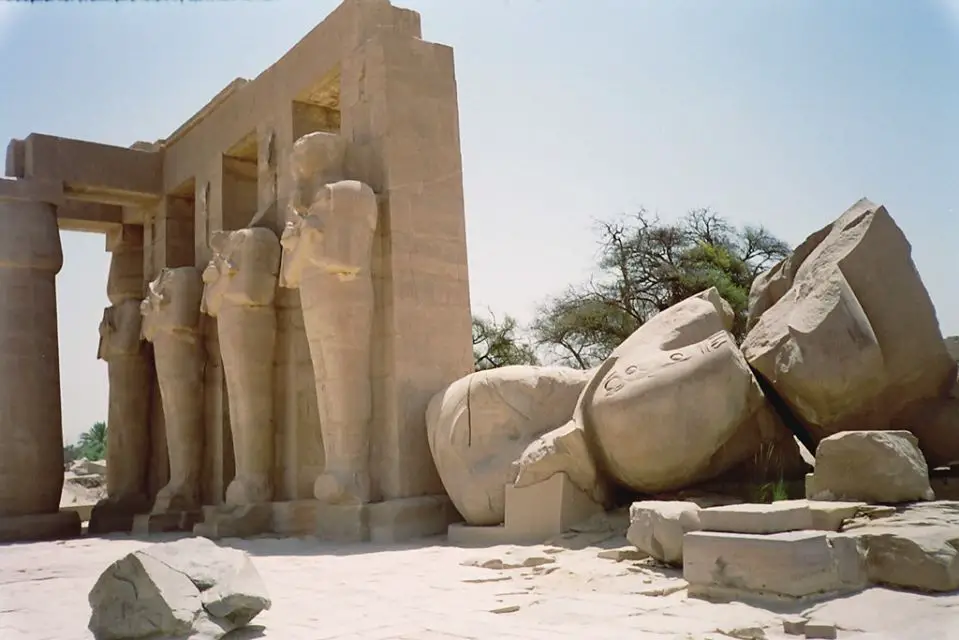
Note:
[1] In Carmelo Bene's version, given for his play
[2] Gabriele d'Annunzio - Lavs Vitae, in "Praises of the sky, the sea, the earth and the heroes, Book One - Maia"
[3] Giorgio Colli - After Nietzsche, Adelphi, Milan, 1974, p. 174
[4] Captain of the naval genius, who died during the inauguration of the seaplane (designed to face the Austro-Hungarians) together with Luigi Bresciani
[5] Giuliano Kremmerz, The Science of the Magi - Volume IV, Mediterranee, Rome, 1993, p. 40
[6] Published by SOTVL Translation by Marzio Forgione
[7] Praz's commentary and the poem "On the Medusa of Leonardo da Vinci in the Florentine Gallery" (retransmitted in rhyme by the author of the article) can be found in - Mario Praz, The flesh, death and the devil in romantic literature, Sansoni, Florence, 1976, p. 19
[8] See the symbolism of caritas inherent in the Pelican and grade 18 of the ancient and accepted Scottish Rite: Sovereign prince Rosicrucian or knight of the eagle and the pelican
[9] These are all quotations present in the Preface to Prometeo Liberato that Carducci wrote on January 13, 1894, in Giosuè Carducci - Prose, Zanichelli, Bologna, 1954, pp. 1245-1246
[10] Hesiod, Theogony 507
[11] Robert Graves, The Greek Myths, Longanesi, Milan, 1993, p. 28
[12] Dom Antoine Joseph Pernety, Mytho-Hermetic Dictionary, Rebis, Viareggio, 2019, p. 172
[13] Light - Opus Magicum: The Fire, in “Introduction to Magic - by the Ur Group”, Vol.I, Fratelli Bocca Editori, Rome, 1955, p. 53
[14] See the introduction by Angelo Tonelli to the Caldaic Oracles, Classici Bur, Milan, 1955, p. 5

3 comments on “Percy Bysshe Shelley: Prometheus in the Wind"